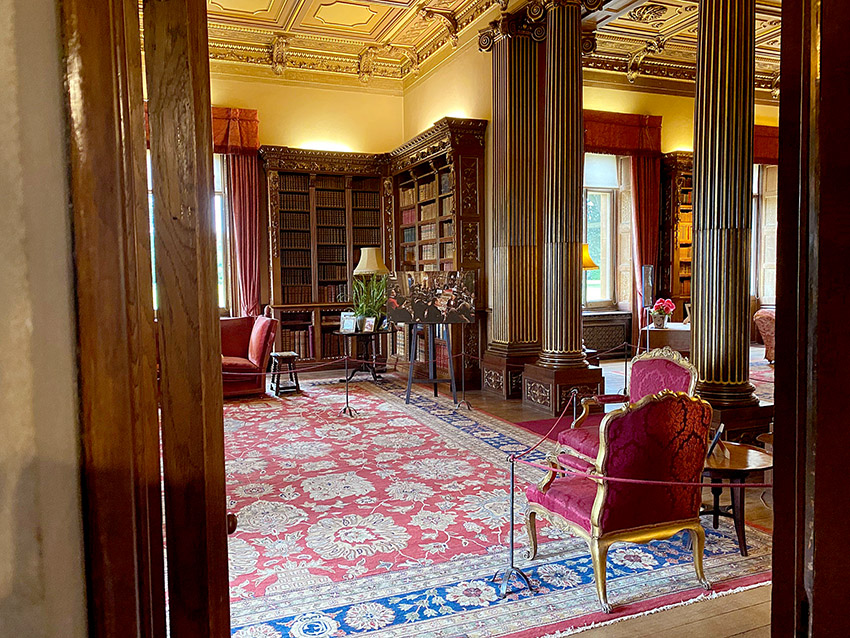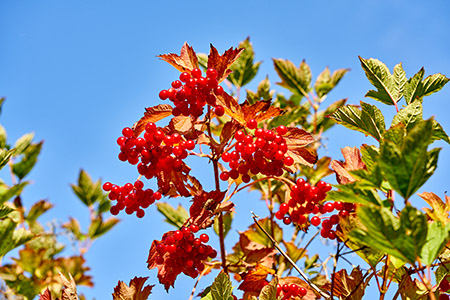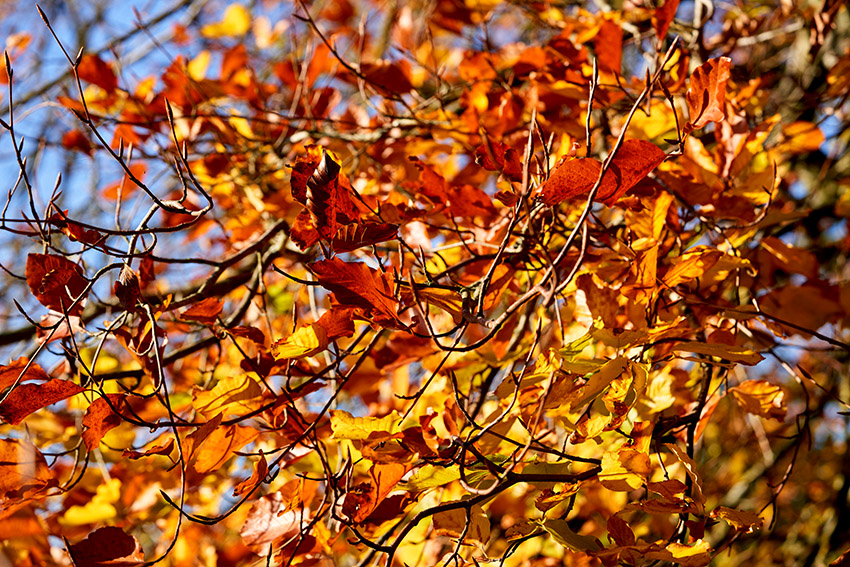
 Push open the polished wooden door that sits on your left as you come into the front hall and step quietly onto the deep blue and red Shiraz patterned carpet that covers the grained oak floorboards of the Library.
Push open the polished wooden door that sits on your left as you come into the front hall and step quietly onto the deep blue and red Shiraz patterned carpet that covers the grained oak floorboards of the Library.
The north Library alone must contain well over a thousand books but another four or five thousand sit on the shelves of the main Library, just beyond the pillars. Some are marvellously old with thick pages or textured paper leaves that force you to turn the pages slowly, others are more modern. They range across a vast gamut of topics and types of prose as well as several languages and come in all sizes. Some are bound in leather, a few in parchment but the overall feel is of quiet, rich dignity.
Some of the books stacked on the lower shelves are really quite large, requiring considerable effort carefully to lift them and place them on a table in order to read. Somehow, if the book is large and older, the word leaf seems more respectful than page: it has more gravitas and weight to it, a sense of history. Actually, according to early bookmakers, a leaf was indeed more than a page because one leaf could, in fact, make two pages. Then of course there are all the metaphors involved with the word. We probably all have been encouraged at some point in our lives either by parents, teachers or friends to turn over a new leaf, to improve and become better. For many of us the chance to read, to learn and to educate our children, the next generation, is at the heart of our hopes and lives.
Books have always been regarded as treasures, things that most of us love and value. They offer so much: we can touch them and share them, read lines out loud, look at the illustrations and admire the bindings. They can offer us an escape, companionship, advice and consolation. They even have their own scents.
From paper and leaves to trees and woods – so equally does nature offer us ways to find an equilibrium which has been particularly important over the past 18 months. When the world is in turmoil, it remained in situ as significant numbers of us rediscovered walking as a pastime and a form of exercise instead of dashing off to the gym.
At this time of year, the leaves clothing the trees across the lawns outside the library take on a new stage in life. Albert Camus wrote that “autumn is a second spring when every leaf is a flower”. It seems extraordinary to me that summer is almost over as the whole year has seemed fleet of foot but there is no denying that the edges of some of the leaves are turning golden and edged in flushed red colours. There is a nip in the air in the mornings.
Observing the mass of bright berries on viburnums and hips on roses, I have been trying to remember my country lore and wondering if there is some significance for the coming winter in the masses of bright berries that are around this year. As usual this is about anticipation – lots of holly berries are supposed to mean a hard winter but the bright colours have a more practical purpose. Birds can apparently see more colours than us so nature uses the vivid reds and oranges to attract them. They then gather and eat the berries, drop or excrete the seeds and thus encourage the plant’s propagation and survival.
Whilst new leaves signal the same new beginning every year in nature, we tend to look for a more linear approach to new starts, steadily moving forward rather than repeating the past, looking for new mandates, new starts or new horizons. The desperate scenes around Kabul airport over the last week have testified more than anything to the urgent desire for survival and new beginnings, there had been the seeds of new beginnings but all now replaced by the need to escape from something which is no longer tenable, either physically or mentally. It has been more than disturbing to watch so many hopes and lives cast down.
The American poet Roethke wrote: “Over every mountain there is a path, although it may not be seen from the valley.” For those families who have been able to leave, it will be the ultimate “turning over a new leaf” as they literally start again from the beginning. For us it is time to help, those who go or those who stay, once more with books, education, reading and writing, those most essential of tools, whatever age or sex, whatever tribe or religion.








 Instagram
Instagram
Lady Carnarvon, books fill our lives with so much pleasure. To open up a new book with that excitement of what is to come. I sit outside with a book and tea and it is wonderful. The trees I can see are turning different colours now. For me Autumn is a peaceful time. A time to think back from the previous months and the remainder of the year. With Kind Regards, Cheryl.
Dear Lady Carnarvon,
you speak from my heart and no doubt for a myriad of others. Education is the core of life. Any new beginning is unattainable without it. Beautiful theme for this Monday. Thank you! Elizabeth
Thank you
Dear Lady Carnarvon, I enjoy your podcasts and blog very much. It is lovely to see English people have their freedom back and for your castle to be open again to the public. We are in lockdown in New South Wales and Canberra so I am spending time in my garden and your pieces on Instagram are a welcome respite. I miss my 7 grandchildren very much but we FaceTime so that helps. It looks like our state will be 80% vaccinated by October so I am holding out for that. My husband and I are fortunate to live on acres so it’s not too bad. Your people give us heart. Best wishes
Nature has helped… and the vaccine helps
Beautifully written,
Once again you’ve captured my thoughts regarding fall and ongoing ,unexpected change..Thank you.
… And so say all of us!
How beautiful, Another day that I spend a good part of the day on your website. (not making beds or doing the dishes and so on.)
Here in the Southern part of the US, we count the fogs in August (and other things like the color of woolyworms…never quite sure what color means what) to see how many snows we will have in winter. I have failed to keep a record this year, so I plan to be pleasantly (or maybe unpleasantly) surprised!
Nancy Lingerfelt
East Tennessee, USA
Thank you again Lady Carnarvon for another beautifully photographed, informative, educational and appropriate blog this Monday morning. Agree with you100% on the sad situation in Afganistan. Seeing so many people being displaced without much of their heritage and belongings going with them and without knowing where they are going and if they’ll ever be able to be back to their home is sad. But prayers are going out that they will be able to “turn a new leaf” and have a healthy and one day happy future.
Looking forward to next Monday morning.
Food for thought from your words — it is a time to reflect and yes indeed turn over a new leaf after all these months of isolation— hoping for better days ahead.
Hope is so important too
Your blog was almost poetic as I follow you through the wooden doors into the library.
I too turn outward when I am in and notice the first signs of Autumn.
Your description is so rich I can see myself there remembering the beauty of Highclere.
I was grateful during the lockdown to be able to get out with my dog and wander miles.
Jackie Turbidy
St Simons Island, GA
Hi, Jackie,
Remember the lovely day we spent together at the castle a few years ago. After reading Lady Carnarvon’s blogs we would visit with more knowledge as to the various features at Highclere. Every week her posts reveal aspects of the castle that make it so special.
Jo Faulmann
Naples, Fl
There is nothing better in the world that a fabulous book the sit-down with especially in the winter time when it’s cold and dreary outside. It can take you to another world. Enjoy your day
Some days I like to leaf through an old favorite book in search of remembering why I loved it so much. Thank you for your continuing Monday morning reflections. The lithograph had no caption. I am guessing it was related to the first Olympiad? Sandie Carpenter, Whitefish, Montana
It was a random book I had never yet opened and I put it on the floor – it was a book which looked outwards to the world: its geography and what others achieved. I felt slightly sad, as the author was in retrospect commending (some) achievements. In contrast, it seems quite a critical world at the moment, a rushed opiniated world , but we seem no better for it…
Always a delightful way to start my Monday mornings here in the North Georgia mountains. You never disappoint.
Thank you for sharing your thoughts and lovely pictures!
I do agree that there is magic on opening a book and reading each page. Kindle can’t match that. Beautiful pictures
Beautifully written, Lady Carnarvon! Books have given the world so much pleasure and knowledge through the ages! I envy you being able to explore the wonderful library at Highclere and read the marvelous books that are there! Thank you for sharing this!
Ah….to spend time looking at all of those wonderful books would be a dream come true! Your library was breathtaking for me and my husband when we visited in 2019. So looking forward to another visit.
Vicki
Colorado
Hi, my Husband & I visited Highclere yesterday and had a lovely day. We are both fans of Downton too so it was so nice to see the rooms inside the castle. The library was amazing and it was lovely to spot a few books in the upstairs I had read and enjoyed myself. The gardens were beautiful but I must say the Begonias that you had scattered inside the castle were stunning.
We found Tutankhamen very interesting.
What a lovely day we had at Highclere. Thank you for letting us see your Beautiful home.
Thank you!
❤️
As one who has always loved books, the look, the feel and the smell, and one who has bought and sold them for the last forty years I really relate to this lovely post.
As regards the leaves of books, I was very fortunate when, as a student, I was allowed into an area in the depths of the British Museum where they store wonderful books. I was writing a thesis on bird illustrators and they had brought out a volume of Audubon’s Birds of America for me to see. It was already wide open on a table when I arrived and every time I wanted to turn a page I had to ask for an assistant to come and help me as the pages are so big. I had to have a special pass to be allowed in and I was only allowed to take a notebook and a pencil in with me as these books are so precious. It was a day never to be forgotten and thank you so much for bringing back such a happy memory
That is a lovely story !
Thank you, Lady Carnarvon, for this Monday moment’s visit to the Highclere Library with its treasures and quiet, peaceful atmosphere. It was the place I lingered the longest during a past visit to the castle. What a wonderful place to sit with tea on a sunny autumn afternoon and “leaf through” the pages of some novel or historical volume. And is it already beginning Autumn at Highclere? Beautiful foliage as the leaves turn golden, beautiful photos, thank you..
How are you – have you survived the fires?
I have always loved books. When I was a child my mother took me to the library often. I still remember the smell that welcomes as soon as you walk through the door. My love of books led me to take a class In bookbinding. It is a beautiful process and one I highly recommend. It in turn moved me to journal and then to publish 2 books. Books have enriched my life more than I can ever totally put into words.
Thank you for your beautiful blog and sharing your gift of writing.
As always, I am grateful for your reflections upon the world of Highclere and how it, in turn, reflects the world around it. Grace and peace to you as autumn makes her arrival.
Lady Carnarvon lovely pictures of new leaves and lovely to visit highcelere castle l hope you and lord Carnarvon have a nice bànk holiday
They are fun photos – thank you
Today you’re writing about some of my favorite things – autumn and books and leaves. My morning Facebook post is about your beautiful blog.
How kind thank you
Lady Carnarvon lovelypictures of new leaves and lovely to visit highcelere castle and fan of Downton abbey and did you have a nice bànk holiday
Thank you – we have been busy working!
Reading is a great escape from every day lives. Nothing better than losing yourself in a good book.
Thank you!
What a lovely read to start my Monday morning! ❤
Kathleen- Vancouver Island, BC
Lady Carnarvon,
The tenderness you seemed to feel flowed through your words about how books are so important to many of us. I actually feel somewhat greedy when I take 3 or more books home from the library, to read for free, and sometimes to keep more than 2 weeks. Also, I often will not open a book right away to start on a new story since it will soon be finished… and I will be sad until I start the next one. I particularly love English mysteries of the Edwardian and Victorian years. Thank you for a wistful read this morning!
Martha G.
Books are magical aren’t they?
God bless you and your kind spirit.
The library at Highclere was one of my favorite spots when I visited in 2014. I thought of when I visited the Biltmore Estate before the lockdown. They are both amazing rooms. I could get lost in either of them for hours!
Dear Lady Carnarvon,
Beautiful, I love reading, Autumn is one of my favourite seasons, such beautiful colours when the leaves start to change. So depressing watching events unfold in Kabul.
Thank you for bringing some joy with your wonderful blog.
Beat wishes
Lorraine xx
So poignant. Thank you.
My beloved father started buying a weekly children’s book for me at the grocery store the first Saturday after my birth, holding me on his lap and reading to me every night after supper “for years”–well, until I started reading myself. I especially remember with fondness “The Slowpoke Puppy” and “The Chirkendoose”.
That warm experience fostered a lifetime of love for reading and for books, which made your letter today all the more meaningful.
I am looking forward to this week’s Viking TV special on your “Maps & Geography program, and the estate’s extensive collection of maps and geography resources which have helped to dictate history.” I confess that when it comes to instilling a sense of peace and serenity, your live programs are better than any yoga or meditation exercises!
And I will be forwarding the Roethko quote–new to me–out to my own network.
Thank you so much for such a great start to my day and week! May your own week prosper in every way.
How very kind you are !
Dear Wanda Field,
The Pokey Little puppy was and-is an all time favorite of mine.
I read it aloud to my kindergarten students and they always cried, “Read it again, please?”. I still see it on the shelves 8n the grocery stores. Ms. Carpenter
Dear Lady Carnarvon,
Thank you for your calm and thoughtful blog today. How lovely for you to have such a vast array of books at your fingertips. I love books, history books in particular, and collecting them can easily become addictive. Second hand bookshops always hold a special fascination, with a smell all of their own and wondering who previous owners may have been.
I pray that there can be a satisfactory outcome for the people of Afghanistan. It was so heartbreaking to hear and see the news reports and images of desperation.
I would hope some practical help – they seem small words after the blundering…
Lady Carnarvon,
It is so interesting that the word “leaf” has so many connotations. Your thoughts today parallel this quote. “In every change, in every falling leaf, there is some pain, some beauty. And that’s the way new leaves grow.”
– Amit Ray
What lovely sentiments! My mother cherished reading books, but in her 60’s she lost the ability to read due to macular degeneration. Thank goodness for technology! She can listen to most of her books now, but she really misses touching, holding, turning the pages of a book, and reading in her own voice. She’s 81 now, and keeps her treasured books carefully wrapped and stored in the hope that a cure will be found and some day she will be able to read them again. If you can pick up a book and read it, enjoy that profound blessing.
Dear Lady Carnarvon, There are three things that have kept me sane during 18 months of lockdown and several elderly friends dying of Covid and being unable to visit family and grandchildren.
They are books; walks through the park of a local mini stately home; and a box-set of Downton Abbey, which I pause every time a scene comes up filmed in your glorious library so I can wallow in the beauty of your shelves and shelves of books ! If I lived at Highclere, I’d spend every day in your library ! I don’t know how you ever get anything done, surrounded by so many books !
I do get waylaid!
Ah, so pleasant to see your photos of the colors on the grounds of Highclere after what we see here is what the Greek fires have laid bare and charred in many hills full of virgin forests, and during the worst heat wave I can remember during my 50 years living in Greece. Fortunately I am in the north, near Thessaloniki, so I was some 500 kilometers away from the fires and the smoke, and the heat wave has left us so we are looking forward to a “cool” autumn soon. Thank you, dear Lady, for your concern, may all be well and safe where ever we may be.
Beautiful! Thank you, you made my day!
Sad times but the beauty of autumn is awesome. Prayers for all people!
Dear Lady Carnarvon– Thank you for your lovely and warming thoughts on books. I’m so grateful that my parents taught me to love reading. I have around a thousand books and I love to be surrounded by them. (Having moved twice in the last two years, I’ve wondered if collecting books is really such a good idea–my entire stamp collection of sixty years fits into one three-ring binder!) When I visit Highclere Castle some day, I will linger in your library if the tour allows that. I remember on “Downton Abbey” that the family’s librarian, a Mr. Peterson, was referred to twice but never seen. Thank you also for bringing our thoughts to Afghanistan. The suffering is unbearable to consider. We all must send our best thoughts and our prayers to them. The world is suffering right now also with the effects of global warming on the weather. I was surprised and encouraged by the quote from Camus–at least he did have some uplifting thoughts amid his existentialism. We must find those moments also. Thank you for guiding us to beauty.
Warmly,
Joy Hartnett, Los Angeles, California USA
Dear Lady Carnarvon,
Our small town’s library was in a building with a high stone foundation. A few steps, smoothed by time, led to an insignificant door in the foundation wall. The door opened into a warm, welcoming room dubbed The Children’s Library. I lost my mother when I was a child, and my solace was found in that room sitting in the librarian’s lap as we read and dreamed about world adventures. Being in that room, surrounded by all those books made the world safe for me again. Books are essential and should be treasured.
LADY CARNARVON,
So very beautiful!
Thank you again,
Barbara B..
Dear Lady Carnarvon
Another Blog that triggers thoughts. Books are a most wonderful possession. Containing as they do the the thoughts of Authors who share them with their Readers. In my Library there was a Diary I had purchased dated 1865.
One day as I went through the pages I came upon April 13th 1865. The Diarist noted in succinct words ” Lincoln Shot at Fords Theater”. The next Page which was April 14th he noted “Abraham Lincoln 14th President of the United States born February 12 1809 Martyred April 14th 1865.
Amazing to hold in ones hands the account of an individual who lived during that horrid time but shared them with us 160 years later. I subsequently donated the Diary to the Gettysburg National Battlefield where it is now on Exhibition in its own case in the Lincoln Exhibit at the Museum Battlefield.
Dear Lady Carnarvon:
Thank you for your Monday blog. Even if only online, I enjoyed reading it and re-visiting the Castle’s Library.
I must admit that I am very disappointed to see that the leaves on some of Highclere’s trees are slowly starting to change. Surely, no one is quite ready for Fall (Autumn) to arrive.
Here in Dearborn, it has been a challenge keeping up with the flower and vegetable garden this year. Southeastern Michigan has experienced very humid and exceptionally wet conditions, which has allowed for an almost constant over growth of weeds and tall grass. Seems more time was spent with the lawn mower and weed wacker than with enjoying a beautiful and tasty display.
Until next Monday, I wish you new beginnings.
Perpetua Crawford
P.S. I have enjoyed listening to your Podcasts and watching your Quirky Garden Corner on Instagram.
You are kind! Thank you
Your Ladyship,
Thank you for yet again another beautifully written passage! I simply can not describe the joy and anticipation it brings me to wake up on Monday mornings in the United States and be able to see your latest piece is ready for me to enjoy with my morning coffee. I was listening to your pod cast this morning on my way to work in the rain and hearing that you have a cookbook that you have finished warmed my soul! There is nothing like spending time making a beautiful meal with the ones you love. I must say that I truly miss your videos on YouTube. I enjoyed them so much and I’m sure that others did as well. My most favorites are the ones you did in the kitchen. Hopefully you can bring them back soon if your overwhelming schedule would allow it. Thank you for all you do!
Ryan Parmer
Rock Spring, GA
Thank you you are every kind! I am so glad you like the podcasts, that is happy making on my part!
Dear Lady Carnarvon,
I look forward to cooler weather and my favorite season, fall. We have yet to see any changing of color or heat relief; however, October is our month to truly see the treasures of fall. Therefore, I enjoyed your pictures. Sitting in your library with a good book would be heaven. I absolutely love holding a book and getting lost in its pages.
Pam from North Carolina
As we move into the beautiful time of fall I am praying hard for everyone left behind in Afghanistan. So very sad.
Beautiful photos – beautifully written. Thank you.
*
Thank You, Lady Carnarvon
***
Lady Carnarvon, the photos on your blog and Instagram have such a calming effect on me and the Autumn colours enhance it even more. Perfect.
Thank you for the beautifully written blog on Highclere’s beautiful library and comparing the leaves of books and leaves of nature. You reminded me that turning the leaves of books is like turning a leaf in life or how a leaf in nature turns in color in autumn – sweet metaphors! I learn so much reading your blogs of nature, animals, and estate management at Highclere.
I read that Downton Abbey II’s premiere has been pushed back to next year from Christmas time. With COVID, it must be much harder to release a new movie. I think Dowager Countess Violet would say, “Perfection cannot be rushed.”
Aloha and blessings,
Ada
Lady Carnarvon thank you for the email and lovely to visit highcelere castle and a fan of Downton Abbey and the calendar of Downton Abbey 2021
I really enjoyed this blog entry Lady Carnarvon as I have always been in love with your library. A bibliophile myself, I have always been fascinated by book collections and Highclere’s is beyond words.
And so say all of us, indeed!